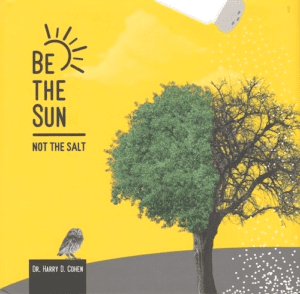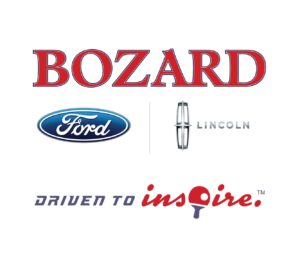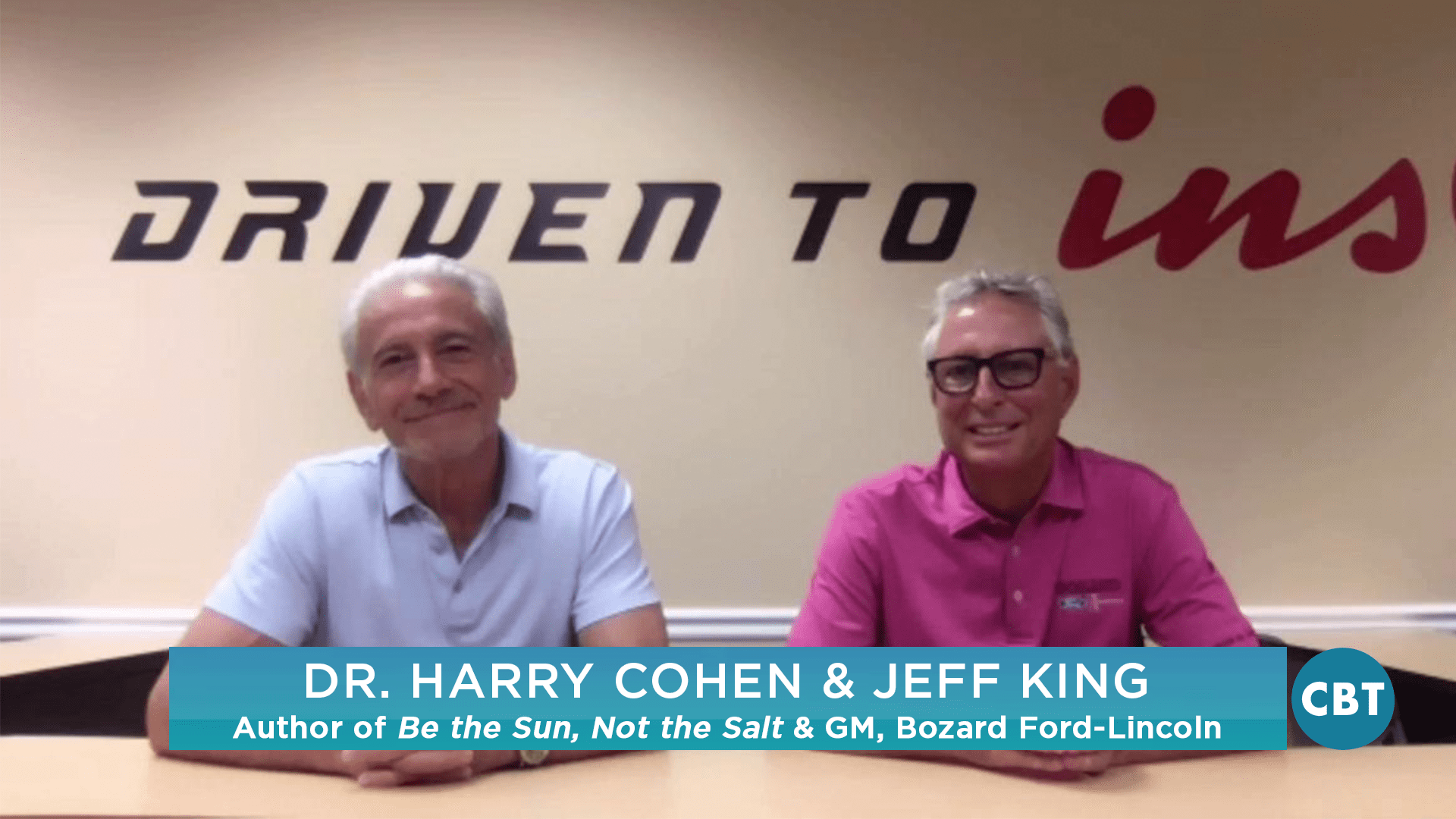Having a positive environment is one of the most important aspects of being a successful and productive employee. But when it comes to training and coaching staff, emotional engagement is often overlooked. Here to discuss how leadership and relationship training have increased dealership sales and reduced staff turnover are Jeff King and Dr. Harry Cohen. Jeff is the general manager and VP of Bozard Ford-Lincoln and Dr. Harry Cohen is a leadership coach and the best-selling author of Be the Sun, Not the Salt.



Jeff King says that these techniques are crucial to the positive environment that they have created within their dealership. When asked about their dealership’s 30 percent turnover rate compared to the auto industry’s 70 percent turnover rate, Jeff and Harry said, “We treat our people nice… People respect each other, they respect customers, they treat each other well. They are nice to each other but it’s deliberate.” Harry says without the deliberate practice and effort that is put into creating such an environment it wouldn’t be able to grow as it has at Bozard Ford Lincoln.
To hear more about Harry and Jeff’s story check out the full interview above.
VIDEO TRANSCRIPT:
Jim Fitzpatrick:
Hello everyone, I’m Jim Fitzpatrick. Thanks so much for joining us on another edition of CBT News. Today, we’re excited to have on our show, Jeff King, General Manager and Vice President of Bozard Ford Lincoln out of St. Augustine, Florida. Joining him is Dr. Harry Cohen, psychologist and bestselling author of Be the Sun, Not the Salt.
Jim Fitzpatrick:
Gentlemen, welcome into CBT News.
Jeff King:
Thank you, Jim.
Jim Fitzpatrick:
Thanks.
Jim Fitzpatrick:
For the sake of this interview here today Dr., can you give us a little bit of an update, or not an update, but kind of an overview and some of the takeaways from your book?
Dr. Harry Cohen:
The book is a culmination of my life’s work, in that it is a distillation of the simplest, easiest practices that can have the most benefit for making you more effective and successful in your life with other people, and for your business of course.
Dr. Harry Cohen:
It’s based on the science of the heliotropic effect, which is the tendency for all living systems to be drawn to energy which is why a plant tilts towards the sun. People have been found to be like that, positive energizers, and negative energizers.
Dr. Harry Cohen:
The title of the book, and the whole philosophy is to Be the Sun, Not the Salt. In other words, be your best self.
Jim Fitzpatrick:
Jeff, obviously you liked the book so much and you liked the concept that you asked Dr. Cohen to bring his teachings into the dealership. Talk to us about that.
Jeff King:
We’ve been working together for probably eight and a half years, and working on creating a positive environment for our people and to make sure that our people are engaged. That’s a term that we use quite often.
Jeff King:
The book is, I think like Harry said, it’s a culmination of what we’ve been working on for the last several years, but it’s a very simple way to spread the word with your people, and to get them to understand it and to get them to be more positive. It makes a dramatic effect on people when they’re doing it because they want to do it, not because they’re forced to do it.
Jim Fitzpatrick:
Why is putting the focus on staff and customer relationships so important to the dealership?
Jeff King:
One of the biggest questions we ever get asked is, how do you hire people? We treat our people nice, and when you treat people nice they tell their friends and their friends want to come work for you too.
Jeff King:
I was speaking with somebody the other day, they said, “You’re going to have 100 people, are you going to have a labor issue?” And I said, “No, we’re just nice to people and they want to come work for us.”
Dr. Harry Cohen:
I was talking to the CFO this morning, and he retired from his previous employment and he could have worked anywhere, and why he chose this place. He said, very explicitly he says, “I could have worked anywhere, but I chose this place because of the culture here.” This was a couple years ago he joined. “The culture here.” “What do you mean by that?”
Dr. Harry Cohen:
People respect each other. They respect customers, they respect each other, they treat each other well. As Jeff said, they’re nice to each other, but it’s deliberate.
Dr. Harry Cohen:
Jim, the whole point of this, and the whole point of Be the Sun, Not the Salt, it’s the same thing. You have to deliberately practice being kind, thoughtful, nice, considerate, aware, customer-driven, employee-driven, that takes effort. It’s not something that, “Well yeah, we should just know that.” Of course, you should just know that.
Dr. Harry Cohen:
But what they do here, which is really impressive, is that they make a concerted, deliberate, conscious effort to be extra nice. Nobody gets to be not nice.
Jim Fitzpatrick:
That sounds phenomenal.
Jim Fitzpatrick:
Jeff, as you know in the auto industry, we suffer from about a 70% turnover rate in our dealerships nationwide. What does it look like at your dealership?
Jeff King:
We’re nowhere near that, we’re about 30%.
Jim Fitzpatrick:
Okay.
Jeff King:
We do, because we’re a single point dealership, we lose some people because we can’t give them management opportunities. There are some people that come to work for us that as other dealerships tug on them, yeah, we might lose a salesperson to take an F&I job.
Jim Fitzpatrick:
Right.
Jeff King:
Or a service advisor to take a service manager’s job. But we have very little people crossing over, working at competitors doing the same deal. Unless of course, they didn’t make it here.
Jim Fitzpatrick:
Right.
Jim Fitzpatrick:
Dr., can you take a person that’s one of those toxic individuals, that sees their life only as the glass half empty instead of the glass half full, and bring them into a culture like this and change them, or should dealers by and large just stay away from those individuals?
Dr. Harry Cohen:
I don’t know what he’s going to say, I’d love to hear. I’ll tell you my opinion. It depends on the person, and the answer is, yes. Because they can change if they’re in the right environment and they want to, absolutely, and I’ve seen it.
Dr. Harry Cohen:
On the other hand, if somebody doesn’t want to change, if they are stuck in their ways and you bring them into a positive culture like this, they will be revealed and they will be, “Sorry, you can’t work here. Not with that attitude.” That’s what I think. I’d love to hear what you say.
Jeff King:
Yeah, a lot of it depends on how much effort you want to put toward that person. Every month we elect a champion, and the champion on Fridays sends out … We have a coach that comes in that gives us homework and assignments that we had to do, and every Friday that person keeps us on point and delivers a positive message to the rest of the management staff.
Jeff King:
What we’ve been doing is using our people that need that motivation. We are making our saltiest people be champions so that it forces them out of their comfort zone, it forces them to do some of the things that we are asking them to do. Like anything, once you do it one or two times, it’s not that hard anymore.
Dr. Harry Cohen:
Unless you nudge, remind and support one another to be the best version of yourself, you’re going to fall back into your old ways.
Dr. Harry Cohen:
The culture here, because they practice this stuff, everyone around here operates in that way, so you are reminded constantly to be your best self.
Jim Fitzpatrick:
As you know, there’s a lot of disciplining throughout the day that takes place in a dealership, whether salespeople aren’t putting their demos back or they didn’t TO a deal, or maybe they let somebody go before they should have. You know, there’s just a multitude of different things that you’re constantly, as a manager, coming down on your salespeople about.
Jim Fitzpatrick:
How do you deal with that, when everything is in this very nice package of everyone being kind to each other? Sometimes isn’t there a need for the manager, or perhaps even the dealer, to come in and be the hammer?
Jeff King:
Sure. Oh yeah, absolutely. That’s me.
Dr. Harry Cohen:
Well, hold on a second. You have a different notion of a hammer, and I really want you to say what you … How do you, and we had this conversation this morning, about holding someone accountable in a kind, respectful, appropriate, be the sun way?
Jeff King:
Right.
Dr. Harry Cohen:
How do you hold someone accountable?
Dr. Harry Cohen:
Jeff, I know you hold people accountable, but you’re not a hammer in the sense that you rip someone [inaudible 00:07:38].
Jeff King:
No.
Dr. Harry Cohen:
You don’t do that.
Jeff King:
Jim, if I’ve talked to a person every day for the last two weeks, and had reasonable conversations with them about how their life is and everything else, and then they do something wrong, I’ve earned the right to have a tough conversation with them.
Jim Fitzpatrick:
Okay.
Jeff King:
But when we reprimand, we reprimand the activity and not the person.
Jim Fitzpatrick:
Okay, that makes sense.
Jeff King:
If I’ve spent two weeks developing a positive relationship with one of our associates, and then I have to talk to them about something they didn’t do right, I’ve earned that right. I’m not just coming in screaming at them. As a matter of fact, my guess is, by the time I go and talk to that person, they’re going to say, “My boss had to talk to me, and he was right.”
Dr. Harry Cohen:
The reprimand and the correction and the tough conversations, they happen organically, appropriately, and respectfully.
Dr. Harry Cohen:
Jim, holding people accountable to the culture that these guys have created here, is hard work. Don’t kid yourself, but the payoff is … I mean, again, I walked around, every single person I spoke to, one guy said, “I love the way I’m treated here by management.” Now there’s a whole lot of wisdom in that sentence. The guy didn’t need to say that.
Jim Fitzpatrick:
Right.
Dr. Harry Cohen:
Because how he’s treated isn’t like always fantastic, but you can be treated respectfully by your boss when you do something wrong.
Jim Fitzpatrick:
Yeah. What kind of an impact has this had on your customer base?
Jeff King:
We started this journey about nine years ago.
Jim Fitzpatrick:
Okay.
Jeff King:
We were selling 50 cars a month. Our annual sales for the dealership were $22 million, and we were losing about a million dollars a year.
Jeff King:
We are now selling in excess of 400 cars a month. We do over $200 million a year. Our service business has gone from 1,500 ROs a month, to 6,000 ROs a month. As soon as we have our expansion, it will be 10,000 ROs month, by the middle of next year.
Jeff King:
Our VIN share, our service loyalty. Ford, when we started was at 23%, and the dealership was at 23%. Ford is now at 28%, and we’re at 72.4%.
Jim Fitzpatrick:
Wow, that’s amazing.
Jim Fitzpatrick:
Dr., if in the event, for the dealers that are watching us right now that say, “Hey, this sounds pretty cool and I think that my dealership could use a tune up like this,” and perhaps not a tune up but an entire change from the top down, in terms of the way that they treat people and each other, how do they go through a process like this?
Jim Fitzpatrick:
If they were to give you a call, is this a one month deal that they’ve got to work on, six months, a year? How does that work?
Dr. Harry Cohen:
It’s free, okay? It costs nothing.
Jeff King:
$14.99, it’s the book.
Dr. Harry Cohen:
The book costs $14.99, you can buy it on Amazon, or go to Bethesunnotthesalt.com, there’s a bulk order availability. But this stuff is free. The practice of it is up to every single individual, and it’s not complicated. You can start wherever you want to start.
Dr. Harry Cohen:
What it costs is your own interest. It starts at the top. If you’re interested in being your best self and helping your team be the best self that they could be, period. Take a look at one book, borrow one, read it, open it up. Use it as the reminder to be your best self, period. However you do that. There’s a million ways to be the sun and a million ways to be the salt, work on that in your own way, in your own store.
Dr. Harry Cohen:
You want my help? Call me up, I’ll be happy to video conference a conversation. I’m not looking to make a bazillion dollars. What I’m looking to do is spread this, so that it becomes part of the way we talk about how to be our best self. “Hey man, you’re being a little salty there, buddy.” “Oh, I’m sorry.” “Hey, what’s going on?” That opens a conversation. Or to be the sun, just look for an opportunity to smile and say good morning. That’s one of the million.
Dr. Harry Cohen:
So Jim, when you say, “Well, how do you do it?” Start anywhere.
Jim Fitzpatrick:
Right.
Dr. Harry Cohen:
Just go grab a book and flip through it. It’s written so that you could open up any page, it’s a one page chapter, to remind you of, do the next right thing.
Jim Fitzpatrick:
Sure.
Dr. Harry Cohen:
Okay? That sort of thing.
Dr. Harry Cohen:
Learn to apologize well, that’s a simple idea. The practice of that is to say, “Hey buddy, I’m sorry for interrupting you while you were talking.” No big deal. That’s it, Jim.
Jim Fitzpatrick:
Right. Very simple.
Jim Fitzpatrick:
Gentlemen, I want to thank you so much for joining us on CBT News. This has been very enlightening. Obviously, with the auto industry suffering from kind of a tough reputation out there, if you will, not just among customers but also among the million people that work inside of car dealerships every day. It’s known as a tough business. It sounds like you’re making this a kinder, gentler industry to be in, and I thank you for that very, very much.
Dr. Harry Cohen:
Thank you, Jim.
Jeff King:
Thank you.
Jim Fitzpatrick:
Love to have you back in a couple of months and kind of check in to see how things are going.
Dr. Harry Cohen:
Great.
Jeff King:
Be glad to.
Jim Fitzpatrick:
Great, thank you so much gentlemen.







